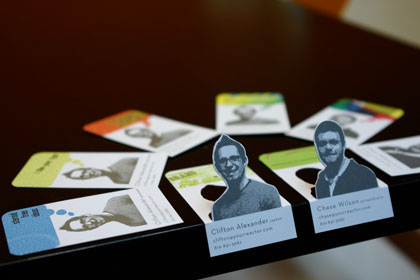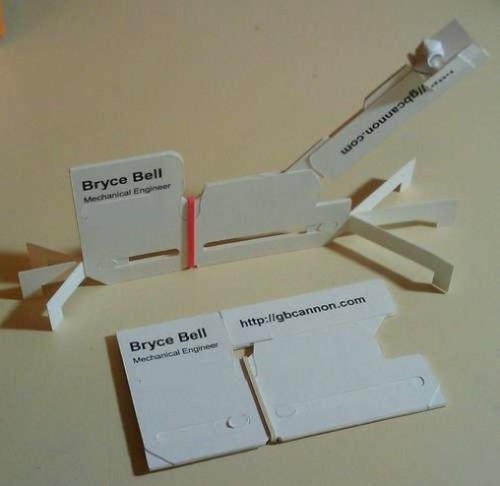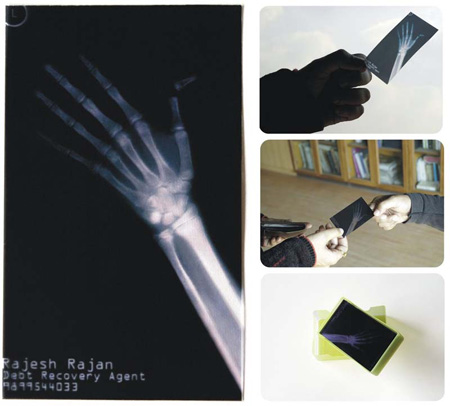As a follow up to my last post about college related stress, and on a slightly similar note, here are some things I would change about the Bible College/Seminary (for American Readers) experience. You can sum up these points with “make the college experience more reflective of real life.” I have some other thoughts about the process the Presbyterian Church uses for sorting out its candidates. But I’ll keep this general for the sake of maintaining my position as a candidate…
- Make ministry more of a priority
I feel like I’ve been sucked out of any sense of normal church life (well, normal based on the last eight years of heavy involvement in church life) by the college experience. I’ve almost forgotten what its like to talk to somebody on a week night, or talk about anything other than what I’ve learned or been thinking about during the week on a Sunday. It’s what people ask. And I’m often too tired or distracted to care. College students are meant to be involved in church life, as a candidate I’m meant to do ten hours a week… But count off the hours of church on a Sunday (twice), Bible Study, and a Staff meeting and my time is up. This may be my bias against languages speaking – but I spend a lot of my time doing language grunt work, and a lot of that time wondering what the payoff is in terms of my future ministry, the answer, in the day and age of amazing computer programs and multiple reliable translations, “not a whole lot.” - Teach more practical stuff, earlier
Maybe if I’d done MTS I wouldn’t be saying this – but shouldn’t our facility for training and equipping people for ministry be training and equipping people for ministry. I’m sure most ministry stuff is better caught than taught – but having some formal apologetics training, and a bit of pastoral care/counselling training from the outset would be terrific, and ending up with some how to do the business of church would be nice too. Just thinking about the practical side of ministry, and how things are going to work in the real world when rubber meets road, would be a more valuable exercise than most language classes (there it is again). Role playing, talking to experts, practical stuff that gives you some idea at how you might tackle awkward pastoral issues wold be heaps more useful than hoping you get some really sticky situations in your 10 hours of parish time. - Get students thinking about modern communication technology
Call me biased, but I reckon every Bible College student should blog. Blogging helps to find a written voice. It’s a chance to articulate thoughts on issues raised in class. It’s a chance to be creative, and to think about application. It’s a chance to get ideas out into the world. Blogs could even be part of the assessment process. Vocational ministry is about communication. Bible College students should be thinking about how to use technology, social networking, emails, anything they can get their hands on – for the sake of the kingdom. Blogging is great for crystallising thoughts. They should not only have to blog, but they should have to post comments on the ideas of their friends (on their blogs). This is only a partly serious suggestion. But most marketing people think the Internet is the future – so we have to encourage people in ministry to be thinking about how it fits with their future. The college itself needs to think about how to use the web better, both in terms of its own homepage and the wider world of social networking, blogging, and multimedia stuff. - Make students teach RE as a community service/part of the curriculum
Why are we keeping young, dedicated people who are being educated about the Bible out of what is a golden opportunity for loving and serving our communities. - Equip students better mentally to cope with Scholarship
Rather than spending a week before college starts grappling with the Greek and Hebrew alphabets – we should be helping prepare students for the challenge of dealing with stupid “Emperor’s New Clothes” scholars are going to present to their thinking. Academia rewards new and exciting ideas – which gives rise to a lot of people getting excited about really dumb stuff that shouldn’t be taken seriously past showing why it’s dumb. College should not be a time where you lose your faith and have doubts preyed on by scholars with an agenda who you’re not really warned about. Some scholars are wolves in wool - Modernise assessment processes (get with the programs)
Seriously. Who uses pen and paper for anything other than taking phone messages (other than GTD people) any more? Why am I expected to lug a pen into an exam and scrawl illegibly as fast as I can answering four questions in 2 hours? Get with the times. Students inevitably write slower than their ancestors, and type faster. Concerns about plagiarism or cheating with the power of the Internet are both stupid and unfounded – a) because you can check for plagiarism as quick as you can say “google” and b) because the whole idea of a robust education is getting people to interact with the ideas that are out there – and it’s stupider to expect students to rote learn said ideas in order to regurgitate them in an exam situation. There are tens of good computer programs out there aimed at making the art of theology easier – why aren’t these being deliberately included in the curriculum so that a lifetime of sermon preparation/Bible teaching is also easier? - Make language learning more reflective of reality, and more useful
Most ministers I speak to who use Greek and Hebrew (and its a minority) do it with the aid of books and computer software. And yet we’re expected to memorise paradigms and rote learn vocab in order to spurt it out on demand. I can’t imagine that situation ever arising in the real world… “Excuse me Reverend, could you tell me, on the spot, why this word in my KJV is translated in that way” – aren’t we better off teaching (and I’ve got to give my Hebrew lecturer credit here) people to understand the way the language works (like an animal), equipping students to dissect words and getting a bit of linguistic theory under their belts to avoid illegitimate totality transfers and to understand semantic ranges. At the moment we spend so much time doing rote learning stuff and writing out paradigms until our fingers and eyes bleed that we’ve got almost no time to look at the actual Bible or think about any of the other three subjects. - Get rid of exams
Why do we think asking for regurgitation in two hours, on paper, is a good way to assess thirteen weeks’ worth of work? No one does, and it isn’t. Assessment on a regular basis (to encourage people to keep up with the work – rather than trying to cram it into the short term memory) that is more closely modeled on the real world (discussions, presentations etc) is surely a better gauge of a person’s progress. Show some initiative and encourage people based on educational notions of learning styles and the like. - Make assessment marking less arbitrary (death to word limits)
My own, very personal bugbear,1 is the word limit. Word limits are entirely arbitrary. I am not suggesting no limit on writing – but to use words is dumb. It misunderstands language. It actually encourages dense rather than flowing writing, and complexity over simplicity. Let me explain. Every sentence is an idea. That sentence was five words. My last three sentences used a total of thirteen words. Other people may use the same number of words to express less, others more. Others may use the same number of words but triple the number of syllables, or enhance the complexity of the words they use. We all know that shift+f7 gives you a thesaurus that is capable of turning your rudimentary slang into highbrow academia. Essays should be given a qualitative assessment, not a quantitative one. Students should be penalised for including stuff that’s irrelevant to their argument – but they should not be penalised if their argument required extra words because it needed them. And if you want a limit in order to make the lecturer’s job easier when it comes to marking – set a typeface, type size, and line spacing – and then set a page limit. That will encourage more concise writing. That’s how journalists do it too. You write in column inches, not in word counts (unless you’re a freelancer paid by the word). And you cut stuff from the bottom if you have to edit it. Lecturers should stop reading when the writing gets boring. That’s real life. It’s also reflective of preaching (where you should go as long as you’re interesting – according to QTC’s preaching lecturer). The vast majority of my time writing assignments is trying to cut five hundred words from an assignment that doesn’t have five hundred words to spare. The only options seem to be to lose substantial and important logical steps to an argument, or to go over the word limit and cop a penalty. If anybody knows how to, in 2,000 words, interact with scholarship (at least 10 peer reviewed articles), the Bible, and other primary documents while answering a question that is contentious enough to be at the scholarly coalface, then please, let me know. - Make assessment criteria clearer (and stick to it)
The Australian College of Theology provides guidelines for assessing essays that almost universally get ignored (so far as I can tell). Of the five essays I’ve had marked thus far – only one referred directly to this criteria in terms of the mark given, the rest seemed just to go with some sort of vibe (though the marks have all been fairly similar). - Encourage the development of the fruit of the Spirit above the fruit of the head
I’ve chatted to a few people disillusioned with the college process online, and in real life, in the last little while – and if a criticism comes up enough, from enough different people, sooner or later you’ve got to wonder if it has merit. Assessment of someone’s capability to do ministry is almost always based not on what they know, but if they know God. And if they are suitably gifted. I don’t know how the college can do his better – but I don’t think stress, diarrhea, grumpiness, worry, academic envy, and tiredness, nor did I notice broad knowledge of scholarly opinions, Greek parsing, or Hebrew pronunciation mentioned as desirable attributes in Galatians 5 (and my Greek isn’t that bad, nor is the semantic range of the items in the list that broad). - Start later, finish later (or at the same time)
Again, a personal bugbear. Our college advertises that it finishes in time for students to beat peak hour home. Which is great. What they don’t advertise is that you have to drive to college in peak hour. We live 17 km from the college (according to the GPS) and it takes 40 minutes to get there in peak hour, and 25 minutes off peak. Peak hour seems to start at about 3pm anyway – so the trip home isn’t substantially faster. And seriously, who is at their best in an 8.30 class?
1 I know I break this rule a lot here – I write too many words. But seriously. I’m a journalist. Brevity is my thing. You will find almost no adjectives in my writing. I don’t pad out my sentences with flowery language. I might choose a cool noun here or there, but I try to carry my writing with my vocab in one word bursts. I try to be a sniper rifle, not a shotgun. Word choice is about precision, not about scattering a few words in the breeze hoping one will hit the target.























